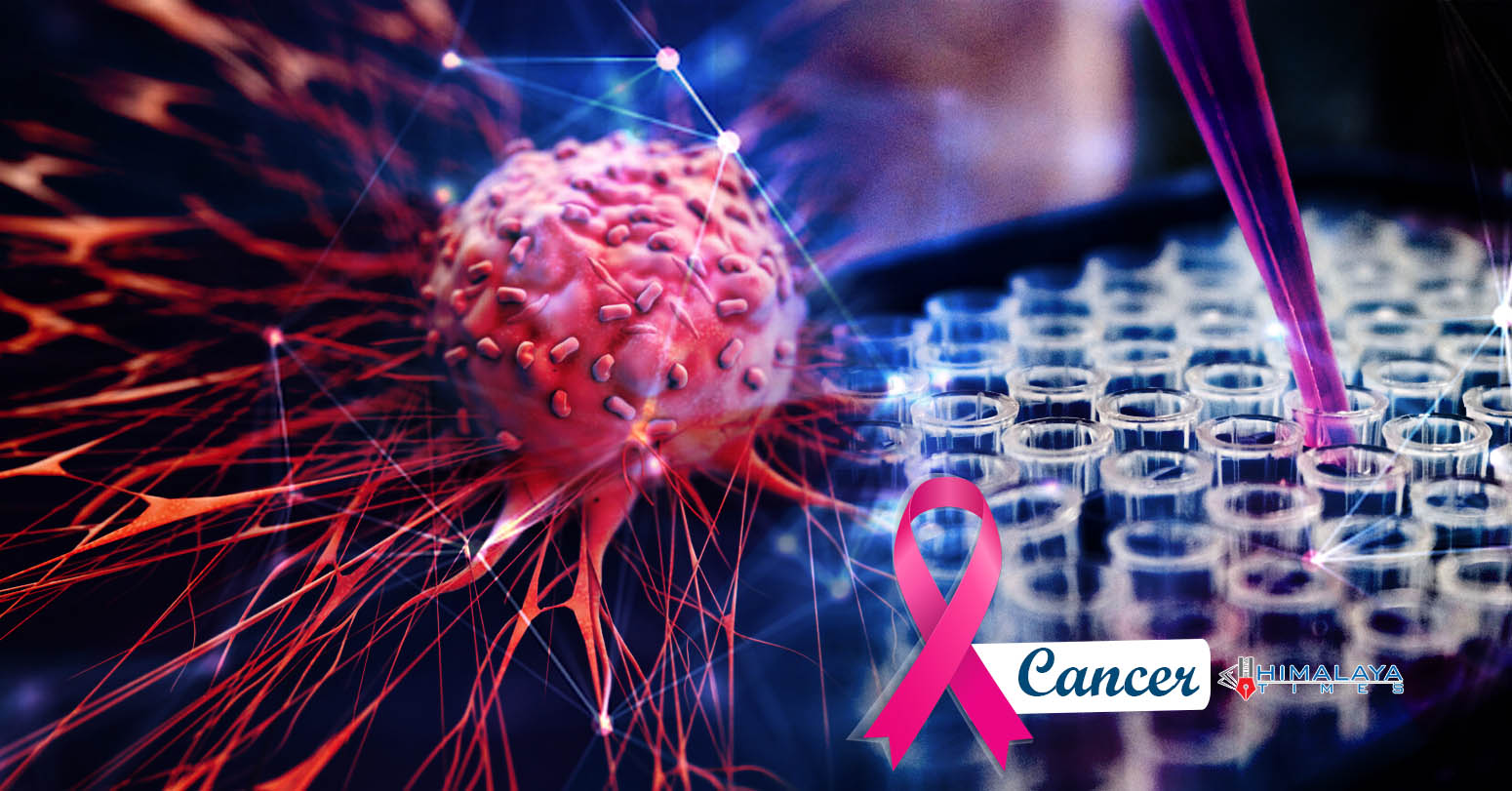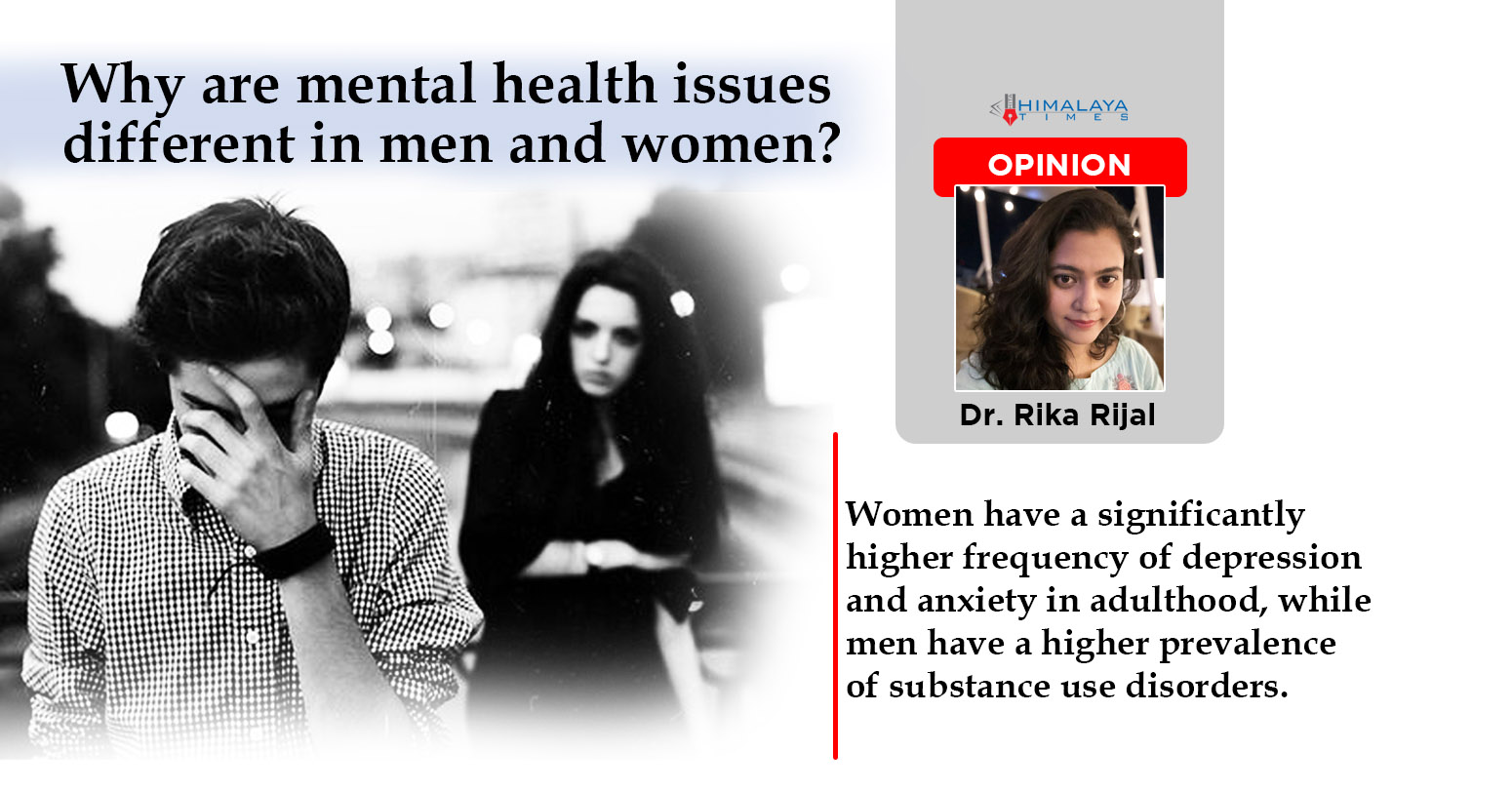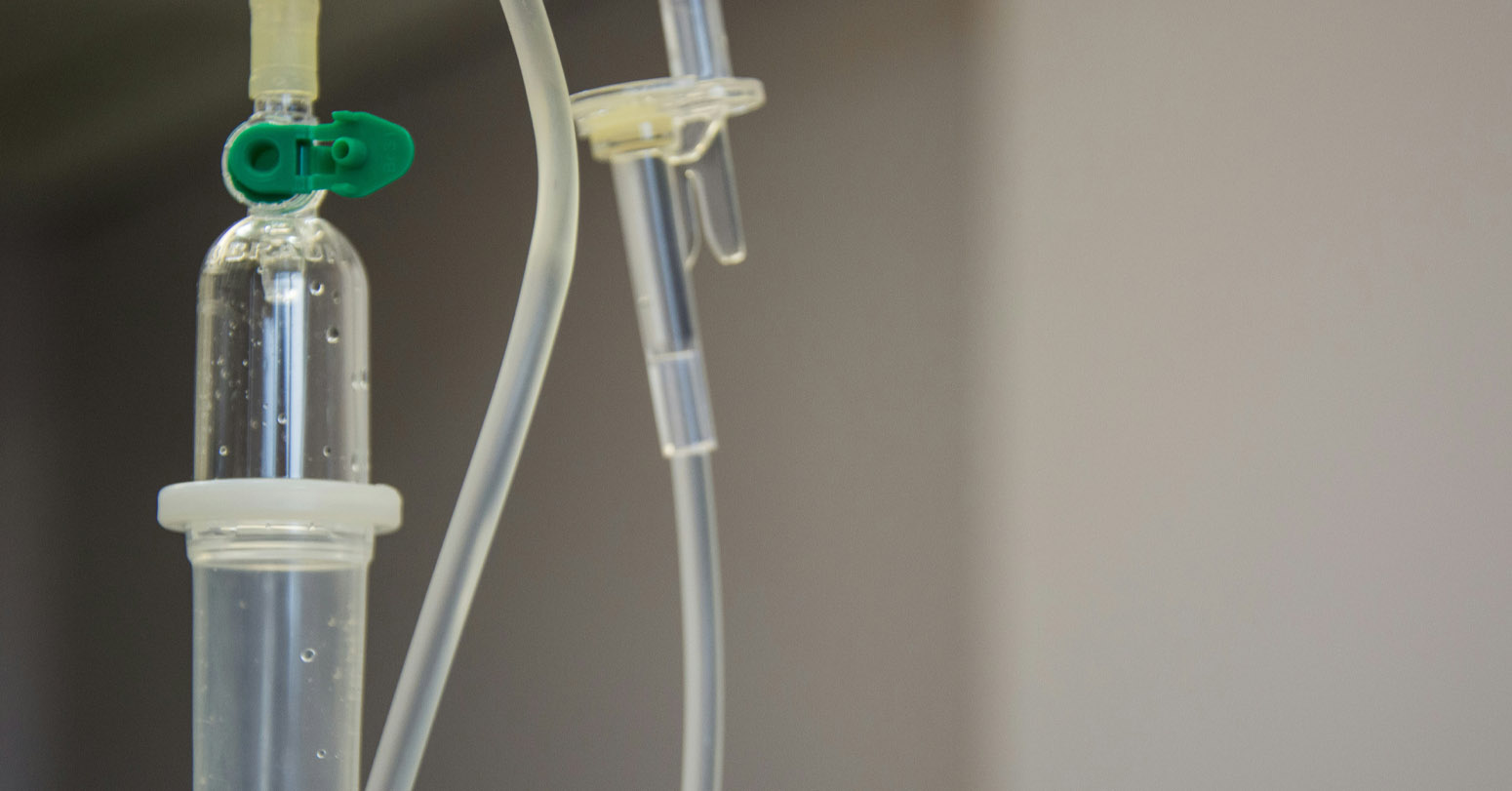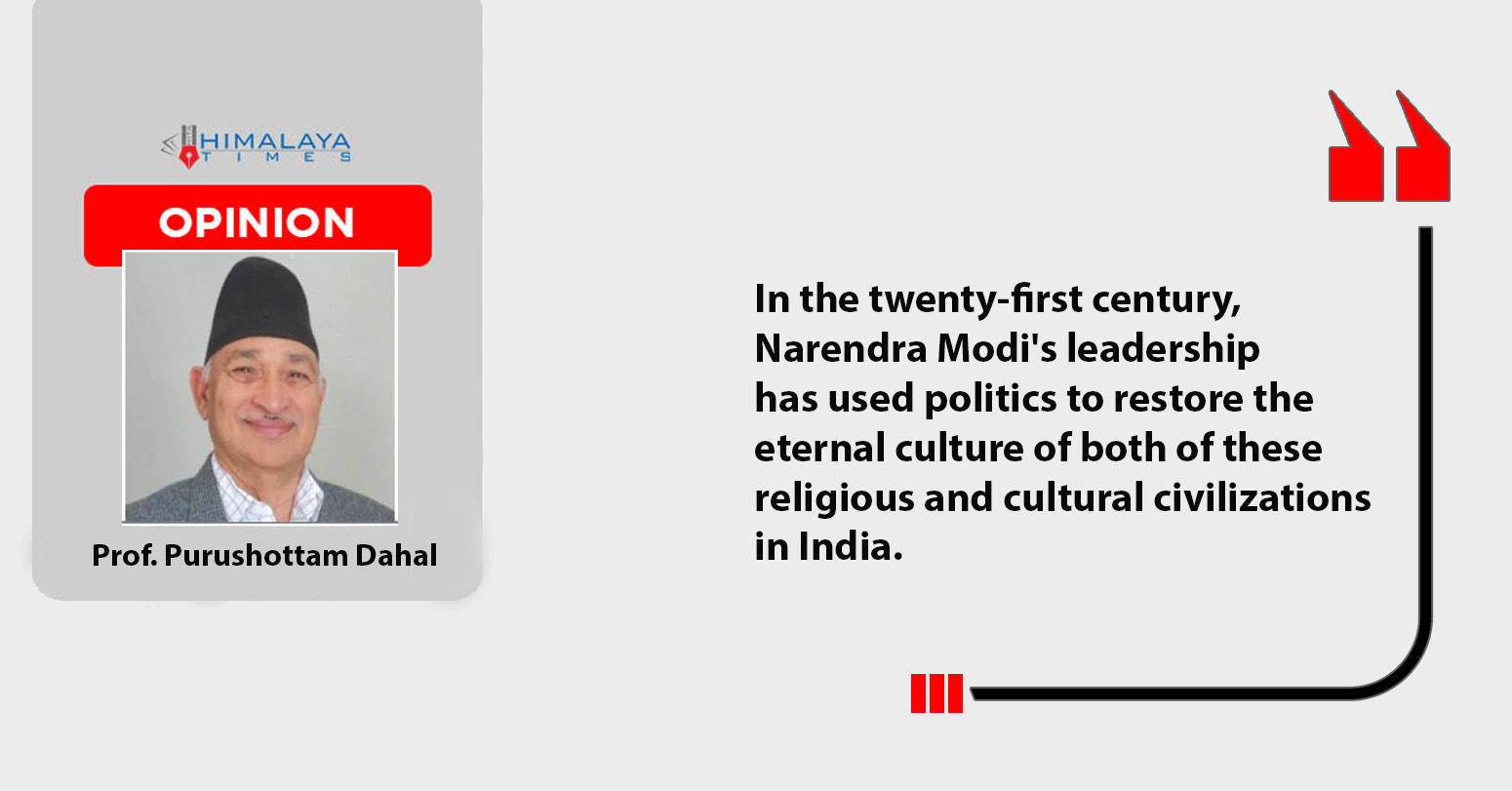Mental disorders can affect women and men differently. Some disorders are more common in
women, such as depression, anxiety, and eating disorders. There are also certain disorders
that are unique to women. For example, some women experience symptoms of mental illness
at times of hormone change, such as during pregnancy, around the time of their period
(premenstrual dysphoric disorder), and during menopause (perimenopause syndrome).
When it comes to mental disorders like schizophrenia and bipolar disorder, studies have not
found significant gender differences. But examining the clinical profile brings to light the fact
that men and women are affected disproportionately by mental illness. Certain symptoms
may be more common in women than in men. Even the course of illness can be affected by a
person’s gender.
Although there are no variations in the overall incidence of psychopathology between men
and women, they can have different symptoms. Internalizing disorders are more common in
women while externalizing disorders are more common in men. Gender differences have
been the subject of many theories, but only a few have been objectively tested.
Women have a significantly higher frequency of depression and anxiety in adulthood, while
men have a higher prevalence of substance use disorders. This can be attributed to bio-
psycho-social factors.
Reproductive health problems like infertility, female sterilization, and reproductive tract
complaints have been related to poor mental health in women. The physiological changes
women face during pregnancy and childbirth cannot be overstated.
Similarly, adolescent girls have higher prevalence of depression and eating disorders as well
as suicidal ideas and attempts than boys. Adolescent boys are more likely to have anger
issues and engage in high-risk behaviours.
Studies are only now beginning to tease apart the various biological and psychosocial factors
that may impact mental health based on differences in gender.
Why are mental health issues different in men and women?
Women's mental health is multifactorial and is determined by both biological and social
factors. The greater vulnerability can be owing to physiological changes as well as social
factors such as poverty, sexual abuse, stress, intimate partner violence, etc.
Trauma is common among women, with half of all women experiencing some form of
trauma during their lives. Trauma is a risk factor for a host of mental illnesses, most notably
post-traumatic stress disorder(PTSD).
Some women report of receiving inadequate or insensitive care in response to trauma, and
many studies suggest that this can also play a role in the development of mental illness.
For example, some women report being blamed for their own rape or abuse. Discrimination
can increase women's exposure to stress. These common challenges are highly stressful and
can downplay women's coping skills and self-esteem. Thus, the challenges of gender
discrimination, gendered violence, and mistreatment of women directly influence to
undermine women's mental health.
Hormonal Issues
Studies suggest that hormonal differences between men and women may play a role in
mental illness. Women tend to produce lower quantities of serotonin than men, possibly due
to differences in hormone levels. Serotonin deficiency has been implicated in a host of mental
health issues like depression and anxiety. Some studies have also found that mood swings are
linked to hormonal changes during the menstrual cycle.
Pregnancy, Birth and Parenting
Women may also face significant psychological anguish and disorders as a result of
reproductive health issues. Infertility and hysterectomy have been linked to an increased risk
of affective/neurotic disorders in women.
Mental health during pregnancy and postpartum deserves attention as untreated maternal
depression can result in serious ill effects in both the mother and the child.
Reproductive health problems like infertility, female sterilization, and reproductive tract
complaints have been related to poor mental health in women. The physiological changes
women face during pregnancy and childbirth cannot be overstated.
The interplay of psychosocial and hormonal factors can also result in an increased risk of
prenatal and postnatal depression. Some women are overwhelmed by the demands of
parenting, particularly in the early days.
Studies have shown that women who have unsupportive partners, traumatic births, who live
below the poverty line, or face high levels of stress are significantly more likely to develop
postpartum depression. This suggests that the challenges commonly faced by women may
directly contribute to postpartum mental health issues.
Health Seeking behaviour
There is a gender divide in the usage of mental health services as well. Men consult mental
health experts less frequently than women. When it comes to general care, gender inequalities
are more obvious, but they fade when it comes to seeking mental health care, the case is exact
opposite.
As per different studies, socially constructed differences in roles and responsibilities, status,
and power between men and women contribute to differences in mental health, health-
seeking behaviour of those affected, and responses of the health sector and society as a
whole.
Also, people have similar ideas about what kind of behaviour is acceptable for men and
women. Gender differences in distress perceptions and health-care-seeking patterns vary
from person to person suffering from mental health issues.
Treatment
The treatment of mental illness in women is same as with other illnesses. We can encourage
them to talk about their feelings and thoughts. They can keep themselves active by doing
some exercise and yoga. Eating a balance and nutritious diet can also help in mental wellness.
Some simple tips for mental wellness includes:
• Clarifying the purpose by prioritizing and working on what is
important
• Decluttering the non-essentials in life
• Focusing and staying on track with day to day routine
• By adding mind set to help manage all types of situations
• Rebalancing in life to include some time for self as self-care is the best
care
• Living healthy lifestyle as good physical health supports good mental
health
• Learning emotion-regulation skills to help navigate more calmly
through ups and downs
Conclusion
It is important to view mental health programs in a gender-based approach to address the
unique challenges posed by women. Apart from this, exploring other modes of service
delivery such as mobile phone technology has the potential to be effective and improve
accessibility to services to boost mental health delivery for women.
Dr. Rika Rijal is M.D (Psychiatrist) currently working at Rhythm Neuropsychiatry Hospital and research center, Ekantakuna Road, Lalitpur.


















Comprehensive Data Protection Law Critically
Gender Differences In Mental Healthcare
Messi Wins Best FIFA Men’s
Erosion of Democracy
Fly Dubai Catches Fire in
“Complexities of the South Asian